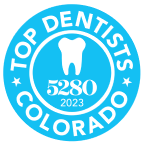If your Denver dentist advises a tooth extraction, the health of your mouth would benefit from removing a damaged or unhealthy tooth. While removing a tooth can seem daunting, there’s a lot you can do to help improve your recovery and get back to life as normal more quickly. When talking about extraction recovery tips, it’s often easier to talk about what NOT to do. By avoiding just a few things during the first few days of recovery, you can experience a positive recovery experience. Though the length of recovery varies from person to person, it often lasts anywhere from a few days to a few weeks. During that time, make sure to avoid the following six things and treat your mouth with extra care.
Our Metro Dental team of doctors have years of experience completing tooth extraction treatments for Denver area patients. If you are in need of safe and effective dental care, contact our downtown Denver dental practice to schedule a consultation. Call us at 303.534.2626.
The first 24 hours are some of the most important. Take care not to disrupt the extraction site the first day, since this is a crucial time for blood clot development. Avoid mouthwashes or swishing any sort of liquid in your mouth, as it could dislodge the blood clot and slow healing. After the first day, or when advised by your Denver dentist, it’s okay to rinse with a saline solution. This will clean the mouth and extraction site and discourage infection or bacteria build-up.
Here’s our list of what NOT to do:
 Do NOT: Touch the sutures
Do NOT: Touch the sutures
Your mouth is sensitive to any change, and after a tooth extraction, you may find your tongue running over the area frequently. Though it’s very tempting to poke and prod the area with your tongue or fingers, too much interference can lead to a slower healing process, or even dry sockets—a rare but very painful condition. Do your best to keep the area untouched. If food pieces get lodged in the sutures, gently rinse with a saline solution (after the first 24 hours) to remove it. Use care when brushing and flossing to avoid the area until healed.
Do NOT: Smoke or drink alcohol
For at least 24 hours after your procedure, do not smoke or drink alcohol — though the longer the better! Both alcohol and tobacco are detrimental to your mouth’s natural healing process, while alcohol can dangerously interfere with pain medication that your dentist may have prescribed. Try to use your extraction treatment as an opportunity to quit tobacco for good.
Do NOT: Eat crunchy or hard foods
Soft, easy-to-chew foods are recommended for the first few days. A diet of soft foods, such as pasta, smoothies, yogurt, soup, eggs, or potatoes, will decrease your chances of damaging the extraction site, or getting food pieces lodged in the wound. As comfort allows, introduce solid foods back into your diet after three or four days.
Do NOT: Use straws
While soft foods are recommended, straws are not. Drinking through a straw creates suction which can dislodge your blood clot and significantly impede your healing process. Use a spoon for all soft foods for at least a week after your procedure.
Do NOT: Overexert yourself
Take it easy so your body can use its energy towards recovering. Keep physical activity like running, lifting heavy objects, or bending over to a minimum. All of these activities could potentially damage or dislodge your blood clot.
If you’re preparing for a tooth extraction, review your recovery guidelines from your doctor thoroughly before your procedure, and ask our team any questions that you may have. We may or may not schedule a follow-up appointment with you about a week after the extraction to examine the extraction site, as well as remove sutures if necessary.
Contact Our Denver Practice for More Information
Your dentist at Metro Dental Care will take the time to explain recovery timelines and expectations, and can help you understand ways to facilitate a faster, more comfortable recovery. If you’re in need of a tooth extraction, our Denver practice is currently accepting new patients. Contact us today to schedule your consultation.

